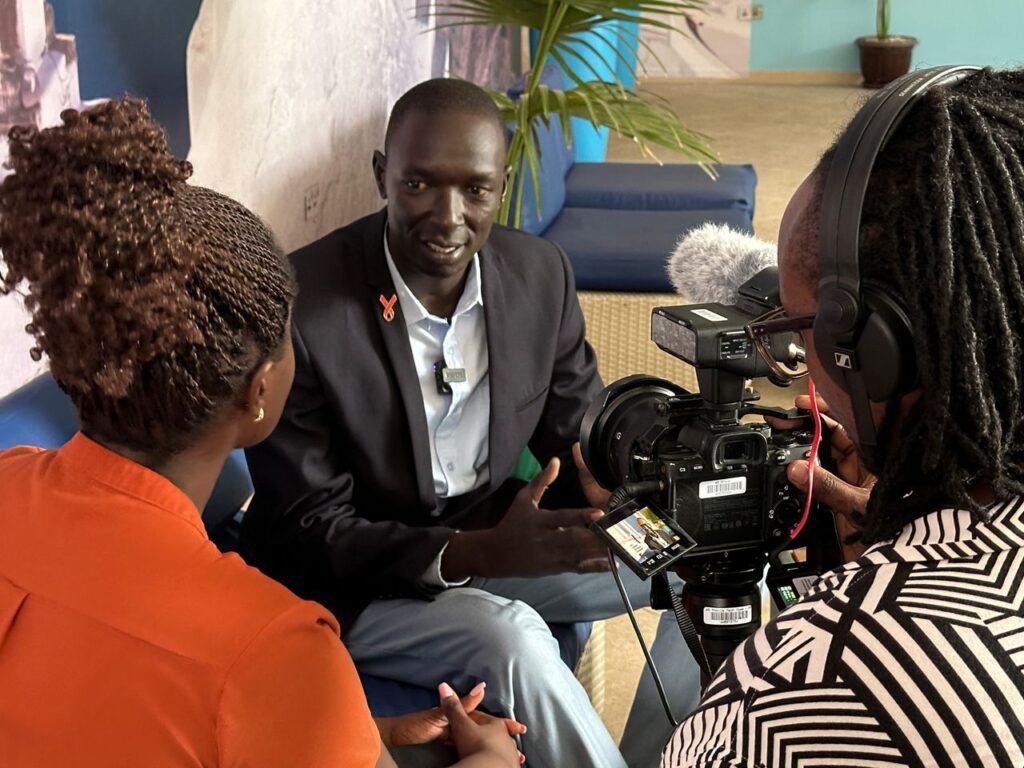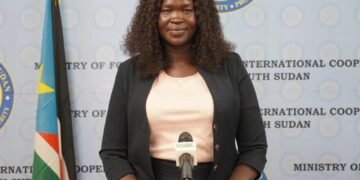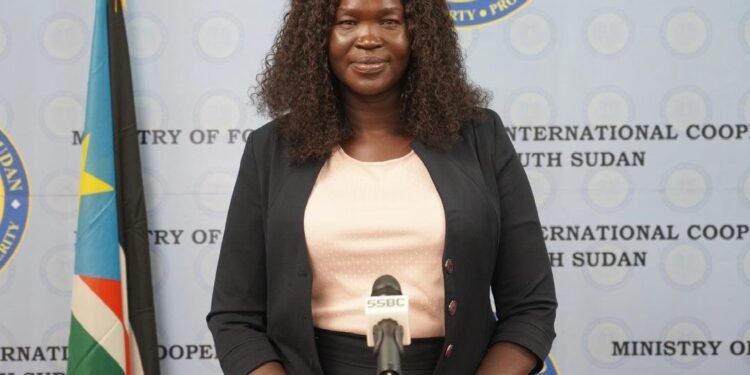Mr. Peter Garang Ngor, would have travelled to the United States of America by June for the International Program in Public Health Leadership if things had gone according to the plan.
But Mr. Ngor who was scheduled for a visa interview at U.S. Embassy in South Sudan was elated – he also received a shocking update that appointments has been cancelled due to imposed visa restriction on South Sudan nationals.
This came after Washington withdrew all visas issued to South Sudanese passport holders, accusing the East African country of refusing to accept the removal of its nationals from the United States.
U.S. Secretary of State Marco Rubio said in a statement, said South Sudan had failed to respect the principle that every Country must accept the return of its citizens in a timely manner when another country, including the U.S., seeks to remove them.
“Effective immediately, the United States Department of State is taking actions to revoke all visas held by South Sudanese passport holders and prevent further issuance to prevent entry into the United States by South Sudanese passport holders,” Rubio said.
“We will be prepared to review these actions when South Sudan is in full cooperation” Rubio added
Mr. Rubio continue saying” It is time for South Sudan’s transitional government to “stop taking advantage of the United States.”
Ngor explained that he was one of thirty-five fellows chosen from 23 African countries for the International Program in Public Health Leadership in U.S., representing South Sudan, but he had to bite the bullet.

“I was in the process of applying and already integrated with the U.S. embassy. Then the order indicates that all the appointments have to be cancelled. That would make my appointments actually invalid. But I was due to travel in June,” Ngor told King Media.
Mr. Ngor, devastated by the terrible news, pleaded with the US administration to refrain from punishing all civilians for the error of the South Sudan government.
He described the revocation of South Sudanese visas as an unfair decision and called for fast action to reverse it.
“I think that is unfair decision and we call for a quick action to reverse the decision. Because we cannot at any point carry burden of our government, if they disagree with the government, then such visa restriction sometimes is meant as a sanction so they should be targeted without putting the entire citizenship of the country into that pool,” he explained.
“I hope and I call for the consideration of this. Hopefully our government will also come in to quickly engage them, because in the 21st century, there should be an opportunity for every citizen,” he continued.
He claims that he is currently in talks to move the program to one of the African universities.
“So yes, that hope is actually rendered inactive now. It is no longer going to be possible. And even if the time frame is now given, because as I said earlier, to prepare for the visa appointment is something that takes time and it requires someone to travel from here to another country for a visa interview,”
The U.S. Department of State also sent emails to numerous South Sudanese regarding the termination of their visas.
“On behalf of the United States Department of State, the Bureau of Consular Affairs Visa Office hereby informs you that due to a policy restricting visa issuance to holders of South Sudanese passports which was implemented on April 6, 2025 because of the South Sudan transitional government’s refusal to accept repatriation of its citizens, your G2 visa with expiration date 09-08-2025 was revoked in accordance with Section 221(i) of the United States Immigration and Nationality Act, as amended,” it reads.
Holders should not seek to utilize their visa because it has been invalidated, according to the United States Bureau of Consular Affairs.
It added that should any South Sudanese plan to go to the United States again, they will need to apply for another U.S. visa again to determine their visa eligibility.
Meanwhile, during a press conference in Juba on April 7, 2025, the Foreign Affairs Ministry Spokesperson, Apuk Ayuel Mayen, said the individual at the center of the deportation question presented a South Sudanese travel document and was confirmed after comprehensive verification processes to be a national of the DR Congo.
“We would like to clarify that the government of South Sudan has consistently maintained open communication and cooperation with U.S. authorities regarding immigration and deportation matters. The government welcomes all its citizens, whether they are returning voluntarily or through deportation processes,” amb. Apuk said.
“Records available to both governments clearly indicate that Mr. Makula Kintu is a citizen of the Democratic Republic of Congo, not South Sudan,” she added.
Amb. Apuk stated that according to information provided by the U.S. Department of Homeland Security, Mr. Kintu entered the United States on August 21st, 2003 and voluntarily departed for the Democratic Republic of Congo in 2009 under file number A098150764.
He later re-entered the United States illegally on July 10th, 2016. During his immigration interview at Juba International Airport, Mr. Kintu’s statements further substantiated that he is not a citizen of South Sudan.
She said the South Sudanese Embassy in Washington, D.C. issued emergency travel credentials for 21 of the 23 people identified by U.S. authorities, with some returning and accepted without trouble.
“Of the two individuals confirmed as non-South Sudanese nationals, one is a Congolese citizen, namely Mr. Makula Kintu, and the other is a Sudanese national. The government deeply regrets that despite this history of collaboration and partnership, South Sudan now faces a broad revocation of visas based on an isolated incident involving misrepresentation by an individual who is not a South Sudanese national,” she explained.
In another twist of events, Deputy Secretary Christopher Landau stated that some people have attacked his post for failing to clarify why the South Sudan declined to receive returned citizen, claiming that such information is legally unnecessary.
“But, as I mentioned in my post, South Sudan’s OWN EMBASSY in Washington certified this particular individual as one of their nationals. Specifically, on February 13, 2025, the South Sudanese Embassy issued the individual an emergency travel letter certifying his nationality as South Sudanese and giving his date and place of birth (in what is now South Sudan, which then was part of Sudan),” he twitted in his X, formerly known as Twitter.
He cited that, it is unacceptable and irresponsible for South Sudanese officials to question their own Embassy’s determination—as far as U.S is concerned, the Embassy’s certification is definitive, and the subject is closed.
“We cannot have a repatriation system that allows foreign governments to reopen and relitigate eligibility for repatriation after those very governments had previously certified such eligibility and an individual has been repatriated,” he added.
“What’s really at stake here is whether we will have a workable repatriation system or not. As far as our Administration is concerned, the answer is clear. Hopefully the Government of South Sudan will recognize its obligation to accept this individual and hence prevent this situation from escalating even further,” he concluded.












